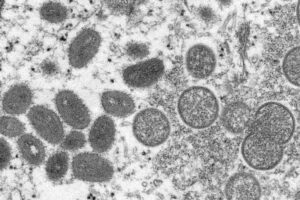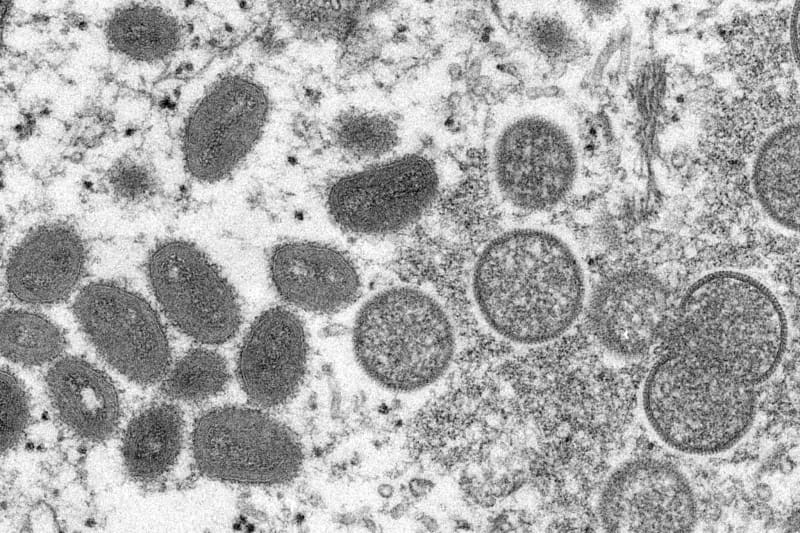
DPA

New research has found that a surface that has been touched by someone infected with monkeypox can be highly contaminated with the virus that has spread around the world in recent weeks.
And yet the study, published in July, said that the chances of people becoming infected by touching a contaminated surface were limited to certain scenarios.
“We assume that surfaces would have to be very heavily contaminated in order for somone to become infected through contact with this surface,” said Johannes Knobloch, head of the study at Germany’s University Medical Center Hamburg-Eppendorf (UKE).
This probably primarily affects people working in the care of monkeypox patients as well as people who live together with an infected person, Knobloch said.
“According to the findings to date, there is no risk from publicly accessible hand contact surfaces such as door handles or lift buttons.”
This viral disease, which has been detected worldwide with several thousand cases in recent weeks, is believed to be mainly transmitted from person to person through close physical contact.
Although experts do not believe the impact of monkeypox will be on a similar scale to Covid-19, doctors are nevertheless warning people, particularly pregnant women and parents of babies, to watch for the symptoms.
According to guidance from the CDC health experts in the US, the monkeypox rash can look like pimples or blisters and typically appears on the face, inside the mouth, hands and feet. If you notice this kind of rash in combination with a fever, aches, swollen lymph nodes, chills and/or exhaustion, then seek medical help immediately.


Recommended Comments
There are no comments to display.